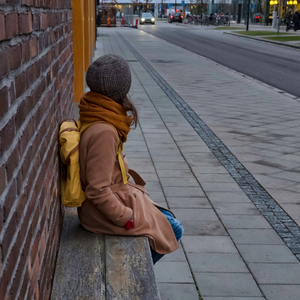
If you have been trying to make it to Confession for over a week, and you are running late and worried you will once again need to push this to another day, and it’s raining, and you’re feeling frustrated and on edge about everything, one of your unhoused neighbors will choose this moment to approach you on York Street and ask if you can take them to Popeye’s. This is a law of nature as universal as any of Newton’s.
When we want God, when we go looking for God, God shows up. It’s just that God rarely shows up in the way we anticipate.
Jesus has some choice words today for the people who thought God kept showing up in the wrong way—first by sending a prophet who was too ascetic, and then by coming himself and daring to eat and drink wine. These people were interested in the trappings of holiness rather than its substance. But, Jesus tells us, holiness can be found in both fasting and feasting. The trappings are beside the point. “Wisdom is vindicated by her works” (Matthew 11:19).
Advent is all about longing for God to show up. So it’s a good time to probe our desires. When we say that we long for God and are waiting for God, what do we have in mind? The trappings or the substance? The wisdom or the regalia?
Are we waiting for a God who will do a song and dance in time with our demands, who will tell us how to eat and drink, who will match our preconceptions of holiness and look the way we expect, and who will be friends with those we expect? Or are we anticipating the coming of a God of perfect justice and profligate mercy, whose kingdom welcomes tax collectors and sinners to the table, and who is sure to surprise and unsettle us?
And how would we know the difference? What would it mean for our lives this Advent if the deepest recesses of our heart cried out with longing for the scandalously loving Christ? If we prayed thy kingdom come and wanted it so badly that it actually hurt? If we nurtured that desire, were pregnant with it, and prepared our lives for its birth?
If we truly wanted and anticipated God’s coming in that honest, bone-deep way, wouldn’t our lives look a little different?
Our desires help drive our actions. It’s like that poem that is often erroneously attributed to Fr. Pedro Arrupe (actually by Fr. Joseph Whelan): “What you are in love with,/what seizes your imagination, will affect everything.” Let’s consider how we can use this time of Advent to fall deeper in love with God—not as someone who dances to the tune of our flutes, and not as we would like God to be, but as God actually manifests God’s self in our lives and in those around us.



